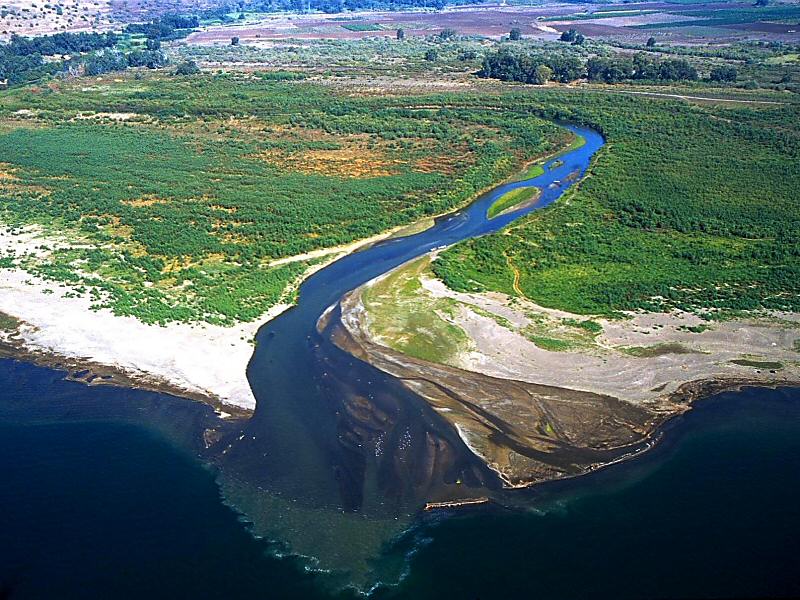As the Science World Turns: July 2012 Edition

Here is your short round up on of international science news from July 2012. Keep reading to seek answers to the following questions…
What ingredients would be available if Top Chef happened 7 million years ago and what ingredients would the primate version use? [South Africa]
How does vaccination relate to solving cholera epidemics? [Rwanda, Guinea, Haiti]
Israel has a water surplus?!?!
Top Chef: Evolution
Since the days of Charles Darwin, it has been hypothesized that our ancestors lived in Africa alongside the ancestors of today’s primates such as gorillas and chimpanzees. It was previously thought that both ancestral groups shared a similar diet consisting of fruit, leaves, seeds, and nuts.
 Recently an updated hypothesis has been proposed that human and ape lineage split due our ancestor’s ability to forage for food in different environments. This month’s edition of Nature published an article discussing the discovery of fossils in South Africa. From this evidence, it was determined that our early human relatives had a more diverse diet than previously thought including fruits, leaves, and bark. This reformulated diet includes items from grasslands and savanna woodlands namely grasses, sedge plants, grass-eating insects, and small animals. These findings indicate that dietary differentiation probed the human and ape lineages in different directions, further illustrating the differences in the species today.
Recently an updated hypothesis has been proposed that human and ape lineage split due our ancestor’s ability to forage for food in different environments. This month’s edition of Nature published an article discussing the discovery of fossils in South Africa. From this evidence, it was determined that our early human relatives had a more diverse diet than previously thought including fruits, leaves, and bark. This reformulated diet includes items from grasslands and savanna woodlands namely grasses, sedge plants, grass-eating insects, and small animals. These findings indicate that dietary differentiation probed the human and ape lineages in different directions, further illustrating the differences in the species today.
I was particularly fascinated with the methodology they used to reveal the fossil information. My immediate thought was that palaeoanthropologists scrutinized the dentistry of the fossil, which is true. However, it is taken a step further when they examine the carbon isotopes found in the teeth that form from carbon dioxide. The proportion of carbon isotopes reveals the photosynthetic pathway of the plants consumed. The C4 photosynthetic pathway is used by most tropical grasses, which also encompasses animals feeding on these plants. Where as the C3 photosynthetic pathway is used by trees and herbaceous plants growing in forests and woodlands.
Rwandan Cholera Control with Vaccines
Women Thinking Inc. and Skepchick are always excited to hear about new vaccination regulations. A group scientists from Rwanda in conjunction two American collaborators congratulated Guinea and Haiti this month for their control of epidemics using the oral cholera vaccination. The lack of action taken towards cholera in post-earthquake Haiti didn’t go unnoticed and aid is now on the way for countries where cholera is prevalent.
Cholera is endemic in the Democratic Republic of Congo, Rwanda’s neighboring country. Health workers in Rwanda have now been trained in outbreak detection and immediately eliminated a small outbreak in a refugee camp last month. Nine cases were diagnosed, treated, and controlled with no additional cases popping up. Within 24 hours, the Shanchol cholera vaccine was acquired for all 10,000 camp residents, however administration was not necessary to the success of their initial efforts.
Biblical River Being Replenished
The famous Biblical body of water, the River Jordan, is lacking water to say the least. This river is estimated to have 5% of the water that once flowed. I can speak to this personally after a some what pathetic ‘kayaking’ trip in the River Jordan a few years ago. Our inflated kayak popped on a rock due to shallow water. During the entire section of the river we paddled, it was rarely over two feet deep.

[credit: http://www.travelujah.com/blogs/posts/Rotemy/tag/yehudiya]




